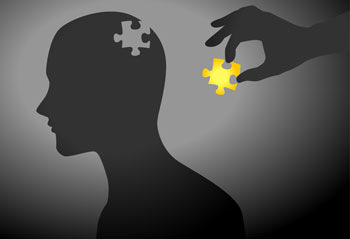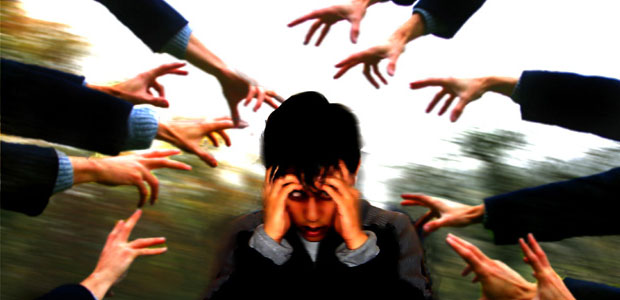10 Types of Psychotic Disorders

Psychotic disorders are severe mental disorders that cause abnormal thinking and perceptions. People with psychoses lose touch with reality. Two of the main symptoms are delusions and hallucinations. Delusions are false beliefs, such as thinking that someone is plotting against you or that the TV is sending you secret messages. Hallucinations are false perceptions, such as hearing, seeing, or feeling something that is not there.
1.Schizophrenia
Schizophrenia is a psychiatric disorder characterised by disordered thinking and behaviour, which often includes delusions and hallucinations. Psychotic symptoms are experienced for at least six months, together with significant social or occupational dysfunction. Other related disorders include Schizophreniform disorder and Schizoaffective disorder.
2. Delusional disorder
Delusional disorder refers to a condition associated with one or more delusions of thinking—such as expressing beliefs that occur in real life such as being poisoned, being stalked, being loved or deceived, or having an illness. Hallucinations are usually not present.
3. Substance-induced psychosis
Substance-induced psychosis is directly caused by the effects of drugs including alcohol, medications, and toxins. Drug and alcohol use or withdrawal can result in psychotic symptoms. These may disappear once the effects of the substances or withdrawal symptoms wear off. In some cases, psychosis persists after the initial substance-induced psychosis. This is common with stimulant drugs, e.g. methamphetamine also known as tik.
4. Dementia
Dementia is the loss of mental functions such as thinking, memory, and reasoning that is severe enough to interfere with a person’s daily functioning. Dementia is not a disease itself, but rather a group of symptoms that are caused by various diseases or conditions. Symptoms can also include changes in personality, mood, and behaviour.
5.Bipolar disorder
Bipolar disorder also known as manic depression causes serious shifts in mood, energy, thinking, and behaviour from the highs of mania on one extreme, to the lows of depression on the other. More than just a good or bad mood, the cycles of bipolar disorder last for days, weeks, or months. And unlike ordinary mood swings, the mood changes of bipolar disorder are so intense that they interfere with your ability to function.
6.Major Depressive Disorder
Major Depressive Disorder is a mental disorder characterized by a pervasive and persistent low mood that is accompanied by low self-esteem and by a loss of interest or pleasure in normally enjoyable activities. It can also be one of the features of a severe major depression.
7.Postpartum psychosis
Postpartum psychosis is a severe episode of mental illness which begins suddenly in the days or weeks after having a baby. Symptoms vary and can change rapidly. They can include high mood (mania), depression, confusion, hallucinations and delusions.
8. Delirium
Delirium is a serious disturbance in a person’s mental abilities that results in a decreased awareness of one’s environment and confused thinking. The onset of delirium is usually sudden, often within hours or a few days. Psychotic symptoms may be part of an acute confusional state that results from another severe medical disorder, such as meningitis, septicaemia or after an epileptic convulsion.
9.Brief psychotic episode
Psychotic symptoms appear suddenly in response to a highly stressful life event, such as being a victim of violent crime. Symptoms may be severe but are short-lived: the psychosis lasts between one day and one month. The patient may or may not be aware of their bizarre behaviour.
10.Psychosis due to a general medical condition
Psychotic symptoms may appear as a result of brain tumours, epilepsy, and other chronic medical conditions. The psychotic symptoms can sometimes be the first sign of an underlying medical condition.





